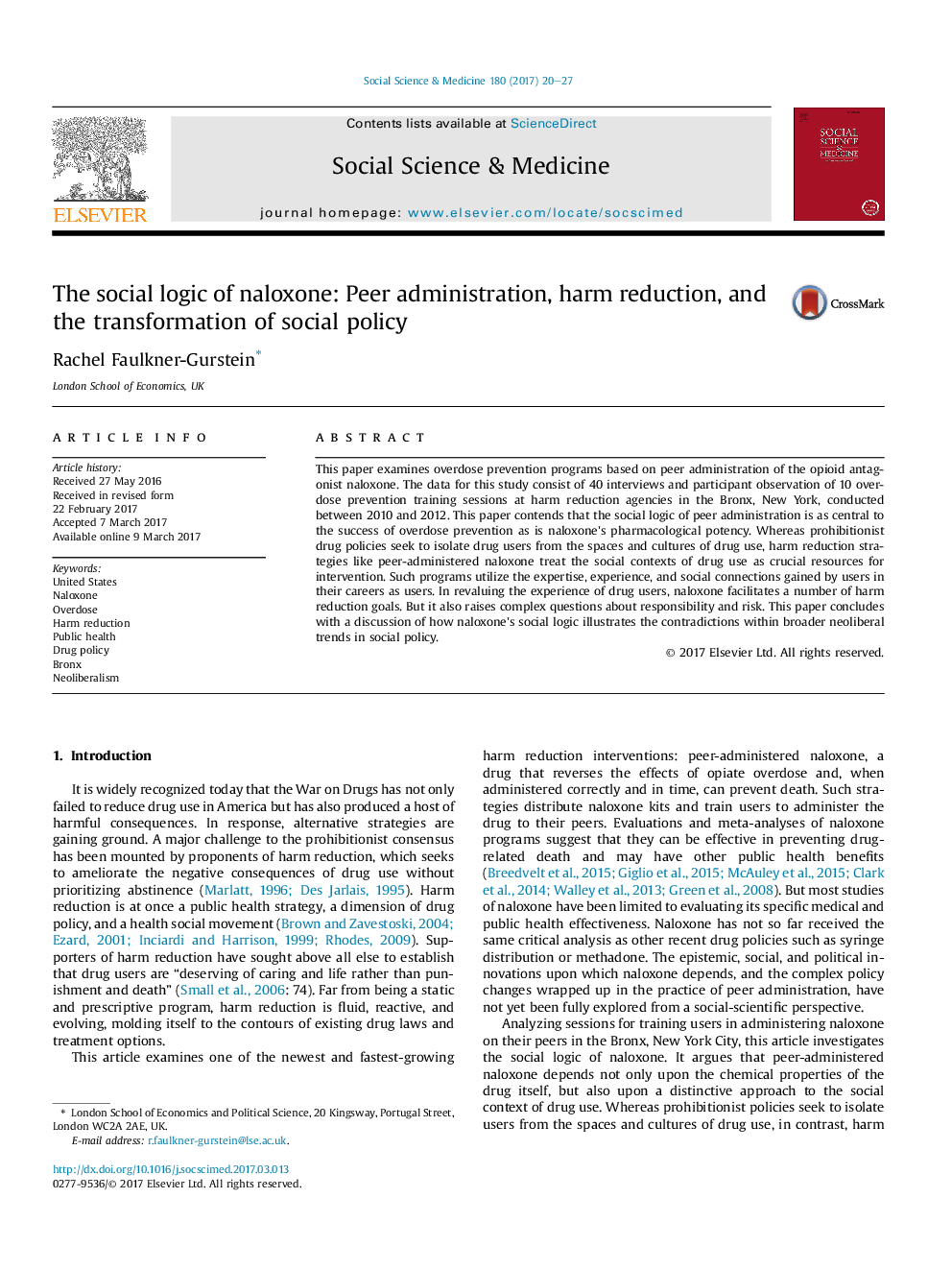| کد مقاله | کد نشریه | سال انتشار | مقاله انگلیسی | نسخه تمام متن |
|---|---|---|---|---|
| 5046570 | 1475989 | 2017 | 8 صفحه PDF | دانلود رایگان |
- Peer administered naloxone relies on social dynamics of drug use.
- Drug users' expertise leveraged to pursue public health aims.
- Peer administration raises questions about risk and responsibility.
- Drug users gain new role as indigenous public health workers.
- Peer administered naloxone example of public health policy in a neoliberal era.
This paper examines overdose prevention programs based on peer administration of the opioid antagonist naloxone. The data for this study consist of 40 interviews and participant observation of 10 overdose prevention training sessions at harm reduction agencies in the Bronx, New York, conducted between 2010 and 2012. This paper contends that the social logic of peer administration is as central to the success of overdose prevention as is naloxone's pharmacological potency. Whereas prohibitionist drug policies seek to isolate drug users from the spaces and cultures of drug use, harm reduction strategies like peer-administered naloxone treat the social contexts of drug use as crucial resources for intervention. Such programs utilize the expertise, experience, and social connections gained by users in their careers as users. In revaluing the experience of drug users, naloxone facilitates a number of harm reduction goals. But it also raises complex questions about responsibility and risk. This paper concludes with a discussion of how naloxone's social logic illustrates the contradictions within broader neoliberal trends in social policy.
Journal: Social Science & Medicine - Volume 180, May 2017, Pages 20-27
